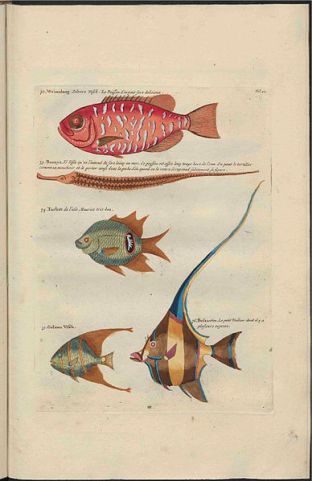Online Resource: Reading Free Rare Books
Ever wanted to see what a Book of Hours looks like? Or a codex from the time of the Roman empire. What would Chaucer’s Canterbury Tales have looked like before print? The Rare Book Room lets you look at rare books and manuscripts you might never see otherwise. Kristen Twardowski explains…
 Louis Renard, Natuulyke Historie (1782): 90, Special Collections, University Library of Utrecht, via Samuel Fallours and Wikimedia.
Louis Renard, Natuulyke Historie (1782): 90, Special Collections, University Library of Utrecht, via Samuel Fallours and Wikimedia.
Sometimes I get a hankering to read old books. Luckily I’ve found a website that allows me to explore some of the rarest books in the world for free.
The Rare Book Room is a website created by Octavo, a company that has digitized hundreds of rare books from the greatest libraries in the world. The collection contains books by Galileo, Copernicus, Shakespeare, Einstein, Wollstonecraft, and numerous others that cover subjects like art, exploration, history, and music.
Despite the obvious care that went into digitizing the books – the website proudly discusses the the resolution of each image – the site itself is very simple and lacks the bells and whistles of many of its contemporaries. Don’t let the project’s unadorned nature fool you though; the creators regularly add excellent new…
View original post 147 more words


Wind Eggs
As much as I admire Plato I think the wind eggs exploded in his face and that art and literature have more to tell us, because of their emotional content, than the dry desert winds of philosophy alone. ...more
- Phillip T. Stephens's profile
- 31 followers




